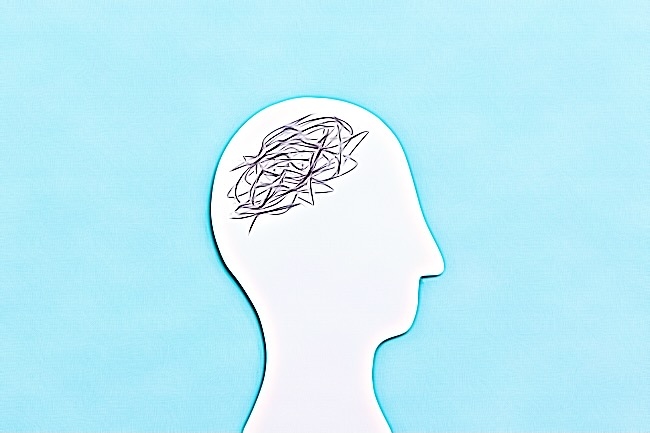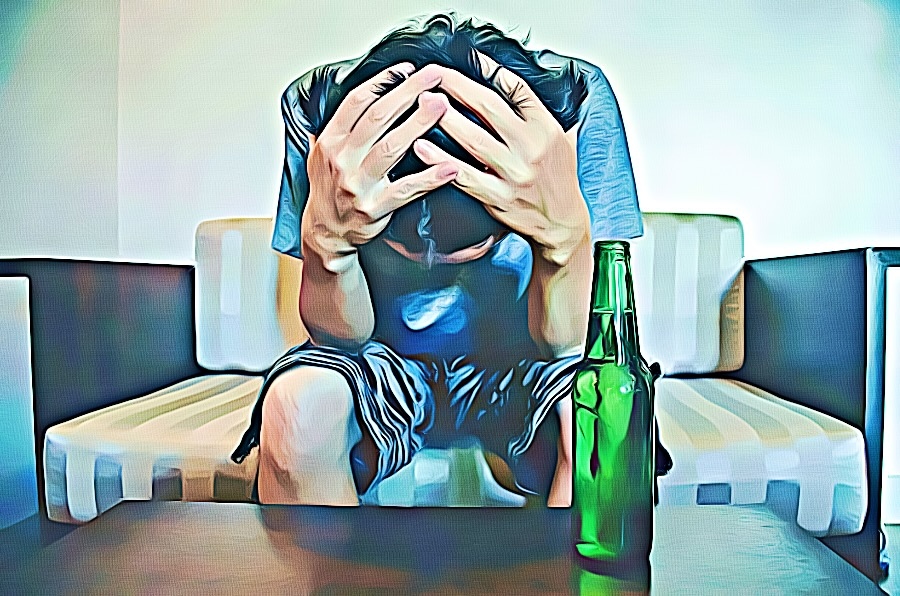A few sips of alcohol may be enough to help someone sit back, relax, and let loose, but it’s a traitorous past-time that often pushes people into addiction. Happy hours turn into a blur of drunkenness that persists for days, and from an outsider’s perspective, one typically thinks that excessive drinking will likely lead to physical afflictions such as liver damage and heart disease.
While it’s true that alcoholism has detrimental effects on the drinker’s physical health, the root of the problem actually lies in its psychological impressions. More than anything else, alcoholism is a mental problem that infiltrates the mind, making it difficult to escape. With that in mind, is alcoholism really a mental illness?
The Impact of Alcoholism on the Individual’s Mental State
When a person becomes dependent on alcohol, the negative psychological impact is typically more severe than the physical ones. The mental effects of alcoholism are multifaceted in that they can impact cognitive functioning, emotion, and even behavior.
As far as cognitive functioning is concerned, alcoholics often suffer from impaired concentration and attention. Even worse, these symptoms seem to persist long after an alcoholic has completed his/her drinking session.
In fact, research has shown that alcoholics’ attention, memory, and even awareness were severely impacted and were only restored after they had completely stopped drinking. As far as emotion is concerned, alcoholics are often emotionally volatile.
They suffer from an inability to cope with daily stress, which drives them to turn to alcohol to self-medicate. The result? Alcoholics often struggle with depression and anxiety.
Finally, as far as behavior is concerned, alcoholics are prone to aggressive and impulsive behaviors. Alcohol’s ability to dull the senses and induce false feelings of invulnerability can often lead to injuries and physical altercations.
Alcoholism and Your Mental State: How Do One’s Alcoholic Tendencies Impact the Brain?
According to the Diagnostic and Statistical Manual of Mental Disorders (DSM), alcoholism is a mental illness, as it has a direct impact on the brain and its functionality. At times, a person is able to enjoy their alcohol consumption, but when this pleasant enjoyment becomes one’s primary objective, it becomes a psychological problem that’s best addressed with the help of a professional.
For instance, when individuals seek out alcohol at the first sign of depression, they’re likely using it as a crutch to cope with mental pain. If they are using it as a way to cope with their daily stressors, they’ve likely fallen into the habit of self-medicating, a form of psychological self-sabotage that can easily turn into emotional trauma and potentially addiction.
In these cases, the individual has likely developed an emotional reliance on alcohol that’s rooted in their attachment to their psychological problems, and their emotional health is just as important as their physical well-being.
What are the Mental Symptoms of Alcoholism?
1. Aggressive Behavior: Alcoholism can make a person prone to violent and impulsive behaviors. Alcohol causes the brain to release dopamine, a chemical associated with pleasure. This surge of dopamine in the person’s brain can lead to aggressive and impulsive behavior.
2. Delusions: Alcoholics often develop false beliefs about the world.
3. Depression: Alcoholics often suffer from depression. Alcohol is known to cause the brain to produce a chemical called ‘serotonin.’ When serotonin is released in large amounts, a person will tend to feel better. However, this chemical is then depleted from the body. This leads to depression.
4. Disorders: Alcoholism can lead to mental disorders like bipolar disorder and schizophrenia.
5. Memory Dysfunction: Alcoholics often suffer from memory dysfunctions, typically impaired attention span. When these symptoms persist long after an individual has recovered from their alcoholism, it’s likely that they’ve developed some form of mental disorder.
What are the Physical Symptoms of Alcoholism?
While it’s true that alcohol can cause damage to one’s physical health, it’s not a physical illness. Even so, it does have tangible physical effects that can be attributed to deterioration and other adverse physical ailments.
Some of the physical symptoms of alcoholism include:
1. Damage to the Liver: Consumption of alcohol can cause liver damage. In some cases, the liver can become inflamed and even develop scarring, and in extreme cases, it can result in Cancer.
2. Digestive Issues: Your digestive tract is not immune to the ill effects of alcoholism either. In fact, excessive drinking can cause indigestion, diarrhea, vomiting, and even ulcers.
3. Electrolyte Imbalances: When alcohol is consumed in large quantities, it can affect the balance of electrolytes in the body. This can result in confusion, insomnia, and even seizures.
4. Cardiovascular Issues: It should be no surprise that excessive drinking has adverse heart effects. Research revealed that alcohol is an independent risk factor for heart disease, leading to heart failure, abnormal heart rhythms, and even stroke.
5. Weight Gain: When you drink, you are typically not all that concerned with how many calories you’re taking in. However, alcohol is a caloric drink, and when consumed in large quantities, it can lead to obesity. This is particularly true when a person drinks and eats at the same time.
As you can see, the list of physical symptoms is extensive, and these are just some of the more common physical effects of alcohol consumption.

What are the Withdrawal Symptoms of Alcoholism?
Alcohol withdrawal symptoms are physical and mental byproducts of the body’s attempt to adapt to a sudden lack of alcohol. While a person’s body is dependent on alcohol, it has come to expect its presence in the body and therefore has developed a chemical dependence on it.
Imagine the chaos that would ensue if your body suddenly were to stop functioning due to a lack of alcohol. This is essentially the body’s response to the sudden absence of alcohol in the person’s body. As such, its withdrawal symptoms directly reflect its chemical dependence on the substance in question.
In many cases, alcoholics will experience the following withdrawal symptoms:
1. Anxiety: Alcoholics often develop anxiety as a result of alcohol withdrawal syndromes.
2. Depression: It’s common for alcoholics to be depressed when they enter their detoxification stage. In many cases, this depression will persist long after they enter recovery.
3. Fatigue: When an alcoholic suddenly stops drinking, his body is going to react rather violently. This is because alcohol is a drug that reacts with the central nervous system. The symptoms of alcohol withdrawal can be severe, and they can persist for weeks or even months after the individual has completely stopped drinking.
Some other symptoms of alcohol withdrawal include:
1. Nausea and Vomiting
2. Sweating
3. Rashes
4. Headaches
5. Tremors
6. Insomnia
7. Hallucinations
8. Anxiety and Irritability
9. Depression
10. Personality Changes
11. Suicidal Thoughts
12. Convulsions
13. Death
Some of the mental symptoms of alcoholism can persist even after the individual has completely stopped drinking. This can give rise to a form of mental illness related to depression, anxiety, and even post-traumatic stress disorder or PTSD. The most severe cases of this disorder can lead to suicidal thoughts and even suicide.
The Bottom Line: How Alcoholism Affects Your Mental Frame and the Importance of Seeking Professional Help to Treat Psychological Dependencies
Whether you believe that alcohol is a mental problem or a physical problem, the bottom line is that it’s a problem that can affect both. Because of this, it’s crucial that you understand the physical and mental effects of drinking and that you take the time to learn how to effectively treat the issue.
If you suspect that you or a loved one might be suffering from alcoholism, you should consider seeking professional help. While Alcoholics Anonymous can help, it’s not strictly a therapy that’s designed to address the underlying issues that are prompting your or your loved one’s alcoholism.
If your loved one continues to drink even after certifying with Alcoholics Anonymous, they should seek out a professional counselor who can assess their underlying issues and find the best method to address them.
Alcoholism is a complex issue that requires an equally complex solution. You can’t simply address the issues about your loved one’s alcoholism by attending a support group. You have to dig deeper and continue to seek help from different groups, from loved ones and professionals.
Source: https://dmh.lacounty.gov/our-services/employment-education/education/alcohol-abuse-faq/

